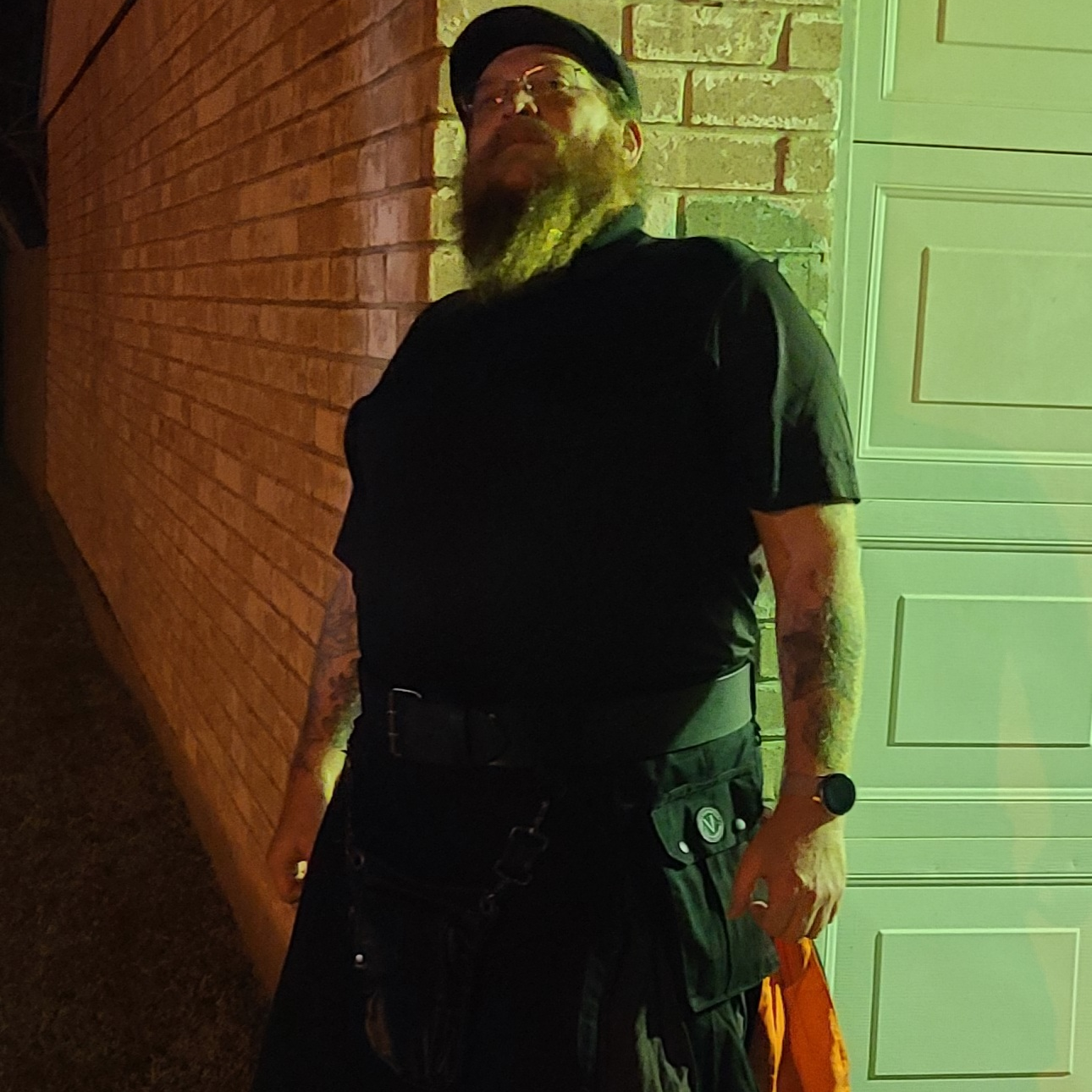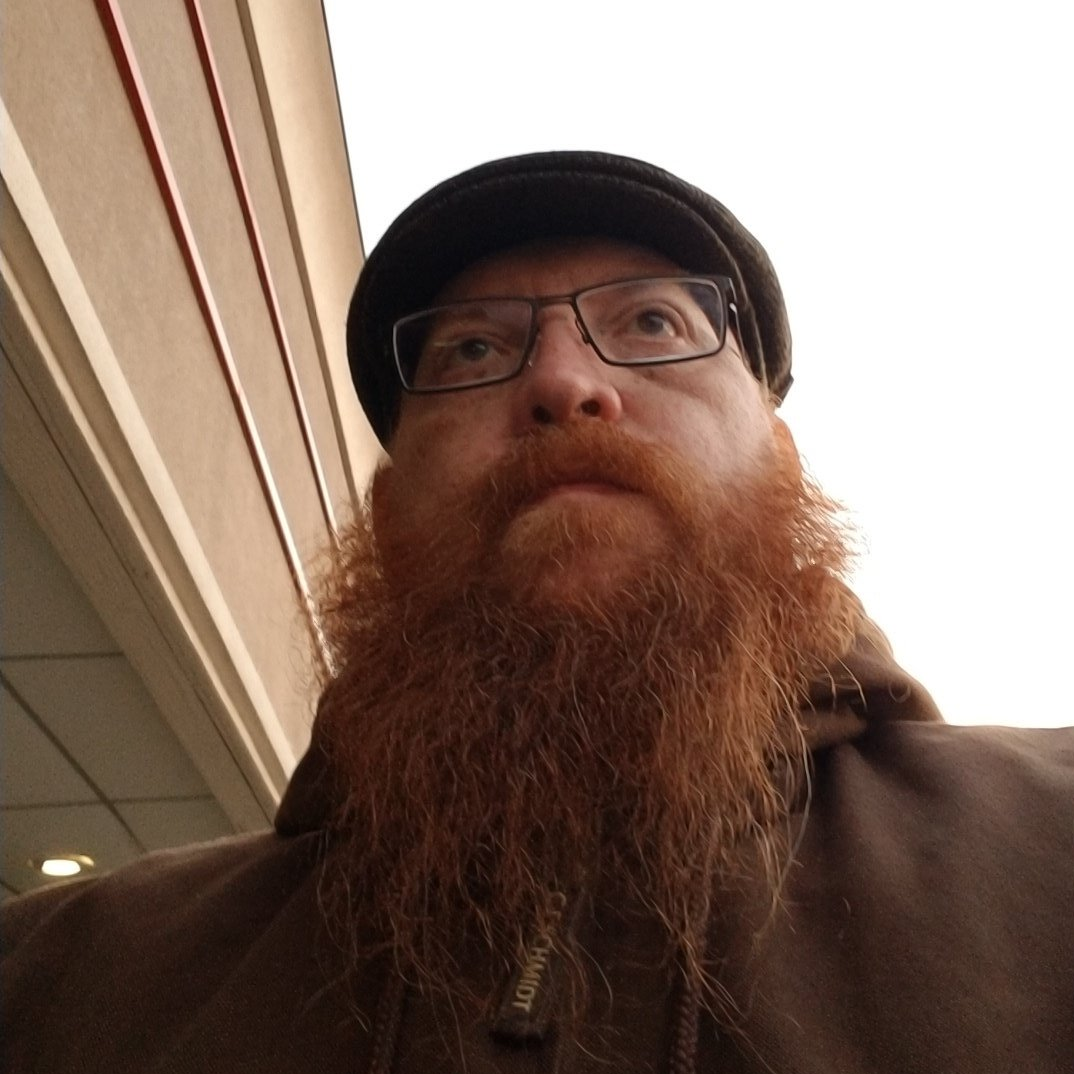Mark L Potter
I'm a Senior Linux Sysadmin with a focus on high performance computing.
I make lots of computers act like one big computer, wear kilts, dabble in Python for personal projects, and use Linux for everything.
I make lots of computers act like one big computer, wear kilts, dabble in Python for personal projects, and use Linux for everything.


I currently work as Sr. Sysadmin for Seitel Inc. My responsibilities include a small, ~100 node, HPC cluster and its infrastructure, a couple of TrueNAS file servers that handle ~1.5 PiB raw storage, a Proxmox VE hyperconverged environment with GPU passthrough, remote access for our entire workforce, the odd bit of networking, and monitoring for all of those bits and everything else.
At Downunder Geosolutions (DUG) I was a core part of the team that managed a complex infrastructure spanning four geo-disparate sites as well as over 8000 physical nodes local to Houston. The biggest challenge was implementing current knowledge at a much larger scale without overloading the infrastructure. All of the Linux folks were responsible for everything in the environment whether that was the diskless boot images, monitoring, or infrastructure projects like Proxmox VE.
PCPC Direct was a VAR that serviced the oil and gas industry as the majority of its business. My responsibilities varied from project to project based on current needs. It was a fast paced environment and required constant learning. Whether it was an RFQ that required learning and understanding a new technology or maintaining certifications the learning was constant. This is where I earned my RHCSA as well as many smaller Redhat certifications. A lot of the work involved travel and I truly enjoyed being on the road, meeting new people, and seeing new datacenters.
MD Anderson is likely the best cancer research hospital in the United States if not the world. While the work was roughly the same as other HPC jobs, the work was directly supporting cancer research. It was in this position that I gained familiarity with R and its intricacies. Unlike the oil and gas industry where everything is standardized, each researcher had their own preferences involving applications and languages. This was a fun challenge as multiple versions of Python, R, and Perl had to be maintained along with some of the standard genetics packages like Top Hat and Bowtie. With a stable cluster most of the team’s time was spent either installing new tools or updating current installations. The central apps repository was the largest I have worked with.
It may be a little strange to list the operating system that I’ve based my career on as a hobby but the simple fact is that I still love Linux. I enjoy tinkering, distro hopping, and pretty much everything about being a Linux geek. I have multiple servers at home and all of them run Linux. I even do all of my gaming on Linux thanks to Steam’s Proton and Bottles. I turned a hobby into a career and haven’t looked back or abandoned the hobby. It is one of the joys I have in life and I can’t imagine it changing. I am always willing to help someone set up a Linux box whether it be to continue using older hardware or something like a purpose built server. I am a very lucky person, I turned something I loved doing into a career and I still love doing it!
Being huge fans of board games, my wife and I run a board game night at our church. This helps us build community and creates a place where we can socialize with people who enjoy the same things that we do. Board games run the gamut from being extremely competitive to requiring a great deal of cooperation. I prefer co-op games but am generally willing to play anything. We own a large variety of games and game night lets us experience games that we may have never seen. It is one of my favorite nights of the month. These are my current favorite games.
I started playing tabletop roleplaying games (TTRPG) with Advanced Dungeons and Dragons 2nd Edition when I was 17 years old. Over the last 30+ years I have developed lasting relationships and a fair number of skills. For quite some years I have mostly been a Game Master (GM). This has allowed me to learn how to bring together groups of disparate people to work towards a common goal as well as mediate conflicts between individuals. Staying current on the underlying systems requires a fair amount of continuous learning which helps keep me sharp. I have run various TTRPGs for groups of friends and even as team building at DUG. At present all of my games are online using the Foundry Virtual Tabletops. I keep current on the following TTRPG systems so that I can adequately run or play them.